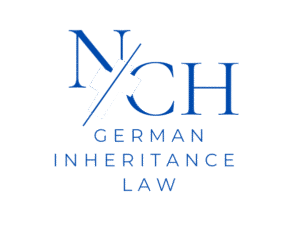How to Sell Your German Property Without Setting Foot in Germany
Selling a house or apartment in Germany when you live abroad can be done smoothly — but only if you understand the legal, tax, and procedural requirements. German real estate transactions are tightly regulated, and every sale must go through a notary. From gathering the right documents to ensuring secure payment, precision at each step prevents delays and protects your profit.
Whether you inherited property, are relocating, or want to sell an investment apartment, the sale process in Germany involves unique challenges: remote document handling, notarized powers of attorney, strict disclosure obligations, and potentially unexpected tax liabilities. Without careful planning, transactions may stall, buyers may withdraw, and tax authorities may claim more than you expect. With professional guidance, however, even a complex cross-border sale can be handled smoothly.
- Sell Smart. Sell Secure.
- Step 1 – Preparation & Required Documents
- Step 2 – Property Valuation
- Step 3 – Marketing Strategy
- Step 4 – Negotiating with Buyers
- Step 5 – Notary Appointment and Purchase Agreement
- Step 6 – Payment and Handover
- Step 7 – Taxes and Costs
- Frequently Asked Questions (FAQs)
- 5 Top Tipps
- Conclusion
Step 1 – Preparation & Required Documents
- Land Register Excerpt – Proves ownership and shows any mortgages or liens
- Energy Certificate – Legally required for marketing
- Building and Site Plans – Needed for buyers and banks
- Declaration of Division (condominiums) – Defines ownership rights and obligations
Tip: Request all documents early to avoid delays of several weeks.
Step 2 – Property Valuation
A realistic property valuation is critical:
- Use a certified appraiser (Sachverständiger) for credibility.
- Online tools are useful as a starting point but rarely reflect true market value.
- Adjust for location, building condition, and energy efficiency.
Step 1
Step 2
Get a Legal Roadmap
Step 3
We Handle Everything
Step 3 – Marketing Strategy
- Exclusive Realtor Listing – Professional marketing and buyer screening; costs 3–6% commission
- Private Sale – No commission fees; requires more time and carries higher liability risk
- Off-Market Sale – Discreet, targeted buyer pool; limited reach
Step 4 – Negotiating with Buyers
- Request written proof of financing before accepting offers
- Disclose all known defects in writing to avoid liability
- Keep written records of all negotiations to prevent disputes
Step 5 – Notary Appointment and Purchase Agreement
In Germany, every real estate transaction must be notarized to be legally valid. Before the signing, the notary will prepare a draft purchase agreement. This draft should never be accepted at face value—foreign sellers and buyers alike should always have it reviewed by an independent German lawyer to ensure their interests are fully protected. The contract regulates not only the purchase price but also liability for defects, deadlines for payment, and allocation of costs.
Attendance at the notary appointment can be in person, but if you are abroad, you may also appoint a trusted representative through a notarized power of attorney. This allows the entire process to be handled without your physical presence in Germany, provided the authorization is properly certified and, if necessary, furnished with an apostille.
Finally, a priority notice of conveyance (Auflassungsvormerkung) must be entered in the German land register. This legal instrument protects the buyer’s right to acquire the property and ensures that no other transactions, such as a new mortgage or sale to a different party, can interfere with the transfer. Without this safeguard, the buyer risks losing their rights despite having signed and paid.
Step 6 – Payment and Handover
- Use a notary escrow account for secure payment transfer
- Confirm transfer of benefits and burdens (utilities, insurance, rental income) in the contract
- Prepare a detailed handover protocol with meter readings, keys, and property condition
Step 7 – Taxes and Costs
- Property Transfer Tax – Paid by buyer (3.5–6.5% depending on federal state)
- Realtor Commission – Typically split 50/50 between buyer and seller (around 3.57% incl. VAT per party)
- Speculation Tax – Seller pays if selling within 10 years without personal use for 3+ years
- Notary and Land Register Fees – Paid by buyer (~1.5% of purchase price)
Frequently Asked Questions (FAQs)
5 Top Tipps
- Arrange a notarized power of attorney early if you cannot attend in person.
- Obtain all legal documents before listing the property.
- Use a professional appraiser for a defensible valuation.
- Always disclose defects in writing—silence creates liability.
- Have the contract reviewed by a cross-border legal specialist.
Conclusion
Selling real estate in Germany from abroad is entirely possible—but only with legal precision, tax planning, and professional oversight. From valuation and marketing to notary signing and tax clearance, each step carries unique risks for cross-border sellers.
German Attorney Nicola Casper-Hoesl supports international property owners at every stage—ensuring that sales are secure, efficient, and profitable.
Provided expert legal guidance through a very complex inheritance situation involving German banks, courts, and tax authorities. Extremely detailed, diligent, and knowledgeable. I would not have been able to resolve all the legal issues without her help. Very highly recommended!
Nicola helped our family recover a €250k inheritance stuck in German probate—without us ever leaving California. Her team handled everything in 8 months.
Nicola is very knowledgeable about German /International Law and listens to her clients’ needs during challenging times in their lives.
She is very kind , responsive and efficient in her email & phone conversations. I was delighted to work with her in solving my niece’s case.
I highly recommend Nicola if someone needs any law advice about Inheritance or German/International law cases.
Nicola is an exceptional attorney with extensive knowledge in German inheritance law. Navigating international legal matters can be frustrating and complex, but Nicola made the process smooth and stress-free. Her professionalism along with clear communication were invaluable throughout the entire ordeal.
If you are in need of a knowledgeable, reliable, and supportive lawyer for inheritance matters involving Germany, Nicola is the best choice! I highly recommend her.
During a very challenging time both emotionally and logistically, I could always count on Nicola. She expertly guided me through the ins and outs of German inheritance law. It was a pleasure to work with her.

